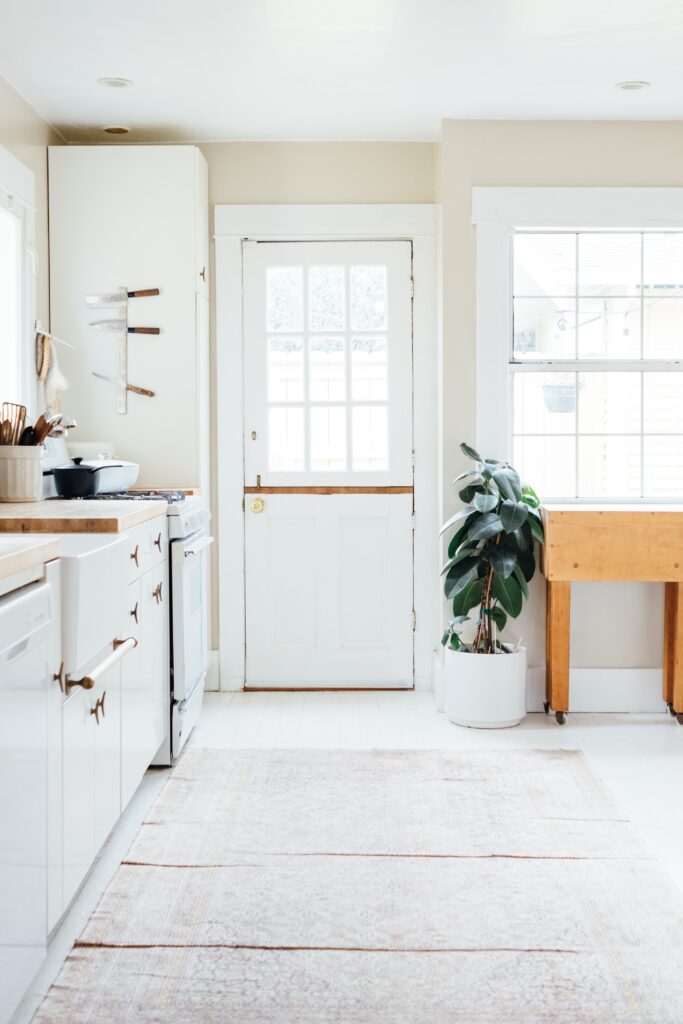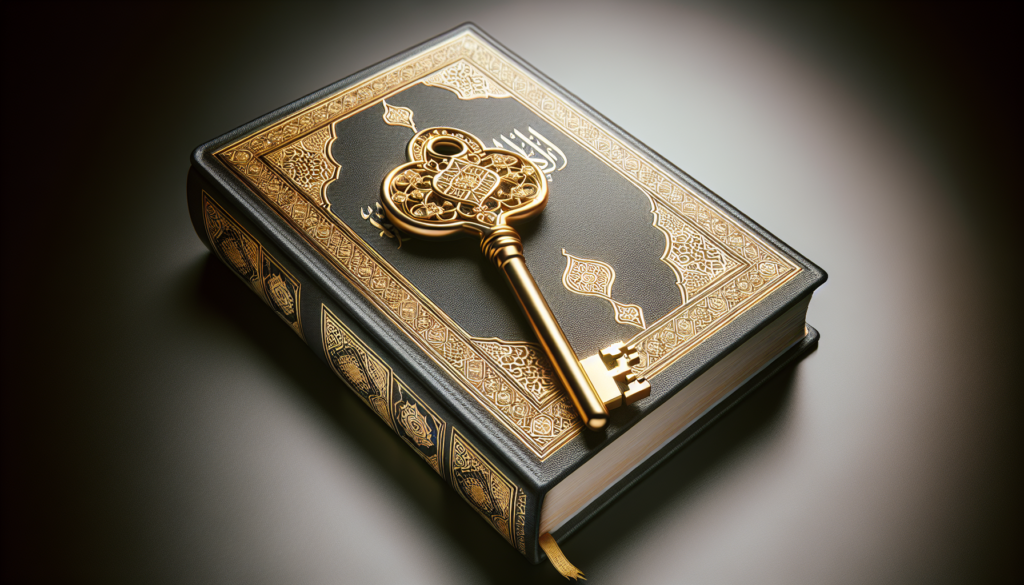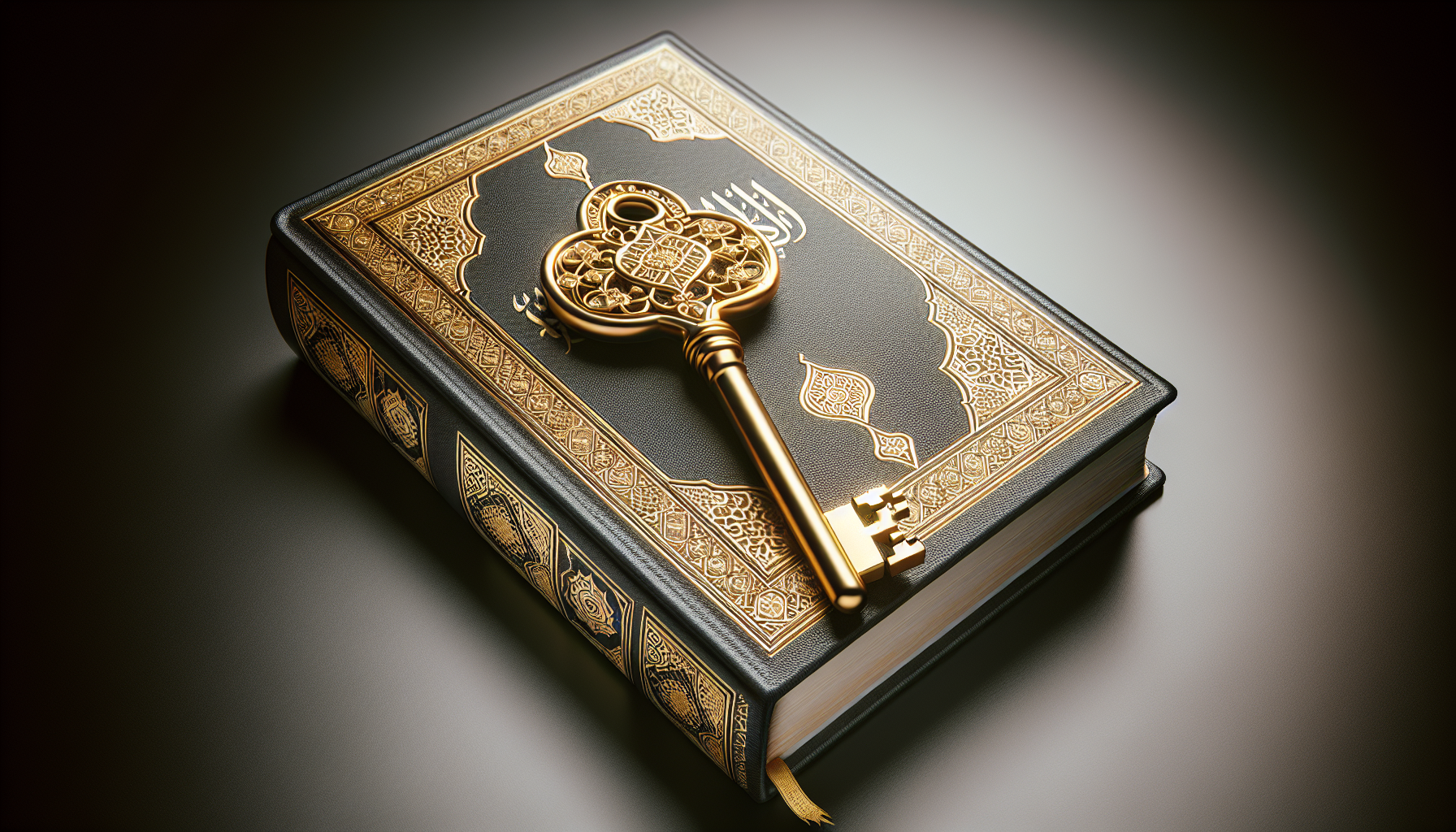If you’re looking to buy a home in Malaysia, it’s important to understand the concept of Islamic home financing. This unique approach to home loans follows Islamic principles and offers an alternative to conventional mortgage options. In this article, we’ll explore the ins and outs of Islamic home financing, including its key features and how it differs from traditional methods. Whether you’re a first-time home buyer or simply curious about the Islamic banking system, this article will provide you with a comprehensive understanding of Islamic home financing in Malaysia. So, let’s dive into this fascinating topic and discover the benefits and intricacies of this increasingly popular form of home ownership.
Overview of Islamic Home Financing
Islamic home financing in Malaysia is a financial system that adheres to the principles of Islamic law, also known as Shariah. This system provides an alternative to conventional home financing options, allowing individuals to purchase homes in a way that aligns with their religious beliefs. Islamic home financing has gained significant importance and popularity in Malaysia, where Islam is the predominant religion.
Definition of Islamic Home Financing
Islamic home financing refers to a system of financing that operates based on the principles of Islamic law. These principles include the prohibition of riba, ensuring profit and risk sharing, avoidance of uncertainty (gharar), and asset-backed financing. By following these principles, Islamic home financing aims to provide a fair and ethical alternative to conventional home financing options.

Importance of Islamic Home Financing in Malaysia
Islamic home financing plays a crucial role in Malaysia due to its significance in the lives of Muslim individuals. As Malaysia is a predominantly Muslim country, there is a high demand for home financing options that align with Islamic principles. This demand stems from the importance of Shariah compliance, which is a fundamental aspect of the daily lives and financial decisions of Malaysian Muslims. Islamic home financing allows individuals to fulfill their dream of homeownership while adhering to their religious beliefs.
Key Principles of Islamic Home Financing
There are several key principles that underpin Islamic home financing:
Prohibition of Riba (Usury)
One of the fundamental principles of Islamic home financing is the prohibition of riba, which refers to the charging or payment of interest. In Islamic finance, interest is considered unjust and exploitative. Instead of charging interest on loans, Islamic home financing employs alternative mechanisms that promote fairness and shared responsibilities between the parties involved.
Ensuring Profit and Risk Sharing
In Islamic home financing, profit and risk sharing are important principles. Unlike conventional financing, where the borrower bears the entire risk, Islamic home financing encourages the sharing of profits and risks between the financing institution and the homeowner. This ensures a fair distribution of benefits and burdens, fostering a sense of partnership and cooperation.
Avoidance of Uncertainty (Gharar)
The principle of avoiding uncertainty, known as gharar in Islamic finance, is crucial in Islamic home financing. Gharar refers to any transaction that involves excessive uncertainty or ambiguity. To adhere to this principle, Islamic home financing requires transparency and clarity in all aspects of the financing process, ensuring that all parties have a clear understanding of the terms and conditions.
Asset-Backed Financing
Islamic home financing is based on the principle of asset-backed financing, which means that the financing is tied to tangible assets. In the case of home financing, the property itself serves as the underlying asset. This principle ensures that financing is supported by real assets and provides a sense of security for both the financing institution and the homeowner.

Types of Islamic Home Financing
There are several types of Islamic home financing available in Malaysia, each offering different structures and features. These include:
Murabahah
Murabahah is a type of Islamic home financing that operates on the basis of cost-plus financing. In this arrangement, the financing institution purchases the property and sells it to the homeowner at an agreed-upon price, which includes the cost and a specified profit margin. The homeowner pays the purchase price in installments over a predetermined period.
Ijarah
Ijarah is a form of Islamic home financing that is based on the concept of leasing. Under this arrangement, the financing institution purchases the property and leases it to the homeowner for an agreed-upon period. The homeowner pays rent to the financing institution, with a portion of the rent being treated as a form of equity, allowing the homeowner to eventually acquire ownership of the property.
Bai’ Bithaman Ajil (BBA)
Bai’ Bithaman Ajil, also known as BBA, is a structure commonly used in Islamic home financing. In this arrangement, the financing institution purchases the property and sells it to the homeowner at a higher price, which includes a profit margin. The homeowner pays the purchase price in installments over a specified period.
Musharakah Mutanaqisah (Diminishing Partnership)
Musharakah Mutanaqisah is a partnership-based structure employed in Islamic home financing. Under this arrangement, the financing institution and the homeowner enter into a partnership, with both parties contributing towards the purchase of the property. The homeowner then gradually purchases the share of the financing institution through periodic payments, eventually attaining full ownership.
Wakalah Bi Istithmar
Wakalah Bi Istithmar is a structure that combines the elements of agency (wakalah) and investment (istithmar). In this arrangement, the homeowner appoints the financing institution as their agent to purchase the property on their behalf. The financing institution finances the purchase using its own funds and leases the property to the homeowner. The homeowner pays rent to the financing institution, with the option to purchase the property at a later date.
Murabahah in Islamic Home Financing
Explanation of Murabahah
Murabahah is a type of financing that involves the purchase and sale of goods at a specified profit margin. In the context of Islamic home financing, Murabahah operates on the basis of cost-plus financing. The financing institution purchases the property and sells it to the homeowner at an agreed-upon price, which includes the cost and a specified profit margin. The homeowner then pays the purchase price in installments over a predetermined period.
Process of Murabahah Financing
The process of Murabahah financing begins with the homeowner expressing their interest in purchasing a property. The financing institution then evaluates the eligibility of the homeowner and conducts a thorough assessment of the property to determine its value. Once the property is appraised, the financing institution purchases it on behalf of the homeowner and becomes the legal owner. The financing institution then sells the property to the homeowner at a higher price, which includes the cost price and a profit margin. The homeowner and the financing institution enter into an agreement that outlines the details of the purchase, including the number of installments and the repayment schedule.
Advantages and Disadvantages of Murabahah
Murabahah offers several advantages in Islamic home financing. One of the main advantages is the transparency in pricing, as the profit margin is disclosed to the homeowner upfront. This transparency creates trust between the homeowner and the financing institution. Additionally, Murabahah allows homeowners to fulfill their dreams of homeownership without the need for interest-bearing loans, providing a Shariah-compliant alternative to conventional financing options.
However, Murabahah also has some limitations. The profit margin in Murabahah tends to be higher compared to interest rates in conventional financing, which can result in higher overall payments for the homeowner. Additionally, the arrangement involves two separate sales transactions, which may lead to increased administrative and legal costs.

Ijarah in Islamic Home Financing
Explanation of Ijarah
Ijarah is a form of Islamic home financing that is based on the concept of leasing. Under Ijarah, the financing institution purchases the property and leases it to the homeowner for an agreed-upon period. The homeowner pays rent to the financing institution, with a portion of the rent being treated as a form of equity. At the end of the lease period, the homeowner has the option to purchase the property at a pre-agreed price.
Process of Ijarah Financing
The process of Ijarah financing begins with the homeowner expressing their desire to lease a property. The financing institution evaluates the eligibility of the homeowner and conducts a thorough assessment of the property. Once the evaluation is complete, the financing institution purchases the property and becomes the legal owner. The property is then leased to the homeowner for an agreed-upon period, and the homeowner pays rent to the financing institution. A portion of the rent is allocated towards acquiring equity in the property. At the end of the lease period, the homeowner has the option to purchase the property at a pre-agreed price.
Advantages and Disadvantages of Ijarah
Ijarah offers several advantages in Islamic home financing. One of the main advantages is the flexibility it provides to homeowners. Since the homeowner is leasing the property, they have the option to move or sell the property during the lease period without incurring penalties. Additionally, Ijarah allows the homeowner to gradually acquire equity in the property over time, providing a path towards homeownership.
However, Ijarah also has certain limitations. The homeowner may face higher monthly payments compared to conventional financing options, as a portion of the rent is allocated towards equity acquisition. Additionally, the homeowner bears the responsibility for the maintenance and upkeep of the property during the lease period.
Bai’ Bithaman Ajil (BBA) in Islamic Home Financing
Explanation of BBA
Bai’ Bithaman Ajil, commonly known as BBA, is a structure widely used in Islamic home financing. BBA operates on the basis of deferred payment. In this arrangement, the financing institution purchases the property and sells it to the homeowner at a higher price, which includes a profit margin. The homeowner pays the purchase price in installments over a specified period.
Process of BBA Financing
The process of BBA financing begins with the homeowner expressing their interest in purchasing a property. The financing institution evaluates the eligibility of the homeowner and conducts a comprehensive assessment of the property. Once the evaluation is complete, the financing institution purchases the property and becomes the legal owner. The property is then sold to the homeowner at a higher price, which includes the cost price and a profit margin. The homeowner and the financing institution enter into an agreement that outlines the repayment schedule and other terms and conditions.
Advantages and Disadvantages of BBA
BBA offers several advantages in Islamic home financing. One of the primary advantages is the flexibility it provides to homeowners. Since the property is purchased upfront by the financing institution, the homeowner can immediately occupy and utilize the property. Additionally, BBA allows homeowners to fulfill their dreams of homeownership without resorting to conventional loans that involve interest payments.
However, BBA also has certain limitations. The profit margin in BBA tends to be higher compared to interest rates in conventional financing, which can result in higher overall payments by the homeowner. Additionally, the homeowner may be subject to late payment penalties if they fail to make timely installments.

Musharakah Mutanaqisah (Diminishing Partnership) in Islamic Home Financing
Explanation of Musharakah Mutanaqisah
Musharakah Mutanaqisah, also known as Diminishing Partnership, is a partnership-based structure commonly used in Islamic home financing. Under this arrangement, the financing institution and the homeowner enter into a partnership, with both parties contributing towards the purchase of the property. The homeowner then gradually purchases the share of the financing institution through periodic payments, eventually attaining full ownership.
Process of Musharakah Mutanaqisah Financing
The process of Musharakah Mutanaqisah financing begins with the homeowner expressing their interest in purchasing a property. The financing institution evaluates the eligibility of the homeowner and conducts a thorough assessment of the property. Once the evaluation is complete, both parties enter into a partnership, with the financing institution and the homeowner contributing towards the purchase of the property. The homeowner then makes periodic payments to gradually purchase the share of the financing institution. As the homeowner’s equity in the property increases, the financing institution’s share decreases until the homeowner attains full ownership.
Advantages and Disadvantages of Musharakah Mutanaqisah
Musharakah Mutanaqisah offers several advantages in Islamic home financing. One of the main advantages is the shared responsibility and risk between the financing institution and the homeowner. With both parties contributing towards the purchase, the financial burden is distributed, reducing the individual burden on the homeowner. Additionally, Musharakah Mutanaqisah allows homeowners to gradually acquire ownership of the property, providing a clear and structured path towards full ownership.
However, Musharakah Mutanaqisah also has certain limitations. This structure requires active involvement and cooperation between the financing institution and the homeowner throughout the financing period. Additionally, the administrative and legal costs associated with the establishment of the partnership may be higher compared to other financing structures.
Wakalah Bi Istithmar in Islamic Home Financing
Explanation of Wakalah Bi Istithmar
Wakalah Bi Istithmar is a structure that combines the elements of agency (wakalah) and investment (istithmar). In this arrangement, the homeowner appoints the financing institution as their agent to purchase the property on their behalf. The financing institution finances the purchase using its own funds and leases the property to the homeowner. The homeowner pays rent to the financing institution, with the option to purchase the property at a later date.
Process of Wakalah Bi Istithmar Financing
The process of Wakalah Bi Istithmar financing begins with the homeowner appointing the financing institution as their agent, granting them the authority to purchase the property on their behalf. The financing institution evaluates the eligibility of the homeowner and conducts a comprehensive assessment of the property. Once the assessment is complete, the financing institution purchases the property using its own funds and becomes its legal owner. The property is then leased to the homeowner, who pays rent to the financing institution. The homeowner has the option to purchase the property at a later date, based on mutually agreed terms.
Advantages and Disadvantages of Wakalah Bi Istithmar
Wakalah Bi Istithmar offers several advantages in Islamic home financing. One of the main advantages is the flexibility it provides to homeowners. Since the financing institution acts as the agent, the homeowner does not have to be directly involved in the property purchase process. Additionally, Wakalah Bi Istithmar allows potential homeowners to lease the property first, giving them the opportunity to assess its suitability before committing to purchase.
However, Wakalah Bi Istithmar also has certain limitations. The homeowner may face higher monthly payments compared to conventional financing options, as the rent may be structured to include a profit margin. Additionally, the homeowner bears the responsibility for the maintenance and upkeep of the property during the lease period.

Comparison between Islamic Home Financing and Conventional Home Financing
Islamic home financing and conventional home financing differ in several key aspects, including principles, impact on home ownership, and financial considerations.
Differences in Principles
Islamic home financing operates based on the principles of Islamic law, which include the prohibition of interest (riba), profit and risk sharing, avoidance of uncertainty (gharar), and asset-backed financing. Conventional home financing, on the other hand, is based on interest-bearing loans and does not adhere to these principles. The principles of Islamic home financing ensure fairness, shared responsibilities, and adherence to religious beliefs.
Impact on Home Ownership
Islamic home financing provides an opportunity for individuals to own a home while adhering to their religious beliefs. Through various structures, such as Musharakah Mutanaqisah, Islamic home financing allows homeowners to gradually acquire ownership of the property. In contrast, conventional home financing typically involves interest-bearing loans, which may lead to a larger financial burden for the homeowner.
Financial Considerations
In terms of financial considerations, there are some differences between Islamic home financing and conventional home financing. Islamic home financing structures may involve higher profit margins or rents compared to interest rates in conventional financing. This may result in higher overall payments for homeowners. However, Islamic home financing offers transparency in pricing, as the profit or rental rate is disclosed upfront. Additionally, Islamic home financing provides a Shariah-compliant alternative for individuals who seek to avoid interest-based loans.
Challenges and Opportunities in Islamic Home Financing
While Islamic home financing has gained significant importance and popularity in Malaysia, there are still some challenges and opportunities that need to be addressed:
Awareness and Education
One of the main challenges in Islamic home financing is the lack of awareness and understanding among the general public. Many individuals may not be aware of the availability and benefits of Islamic home financing options. To address this challenge, there is a need for comprehensive awareness programs and educational initiatives to educate the public about the principles, structures, and advantages of Islamic home financing.
Availability and Accessibility
Another challenge in Islamic home financing is the availability and accessibility of financing options. While Islamic home financing has gained traction in recent years, there is still a need for more institutions and products that cater to the diverse needs of individuals. Increasing the availability and accessibility of Islamic home financing can encourage more individuals to opt for Shariah-compliant financing options.
Innovation and Market Growth
The field of Islamic finance is constantly evolving, and there is a need for continuous innovation and market growth in Islamic home financing. This includes the development of new financing structures, the introduction of innovative products, and the incorporation of technology to streamline and enhance the financing process. By embracing innovation and fostering market growth, Islamic home financing can continue to meet the evolving needs of individuals and contribute to the overall development of the Islamic finance industry.
In conclusion, Islamic home financing in Malaysia offers a Shariah-compliant alternative for individuals seeking to purchase homes while adhering to their religious beliefs. It operates based on key principles such as the prohibition of riba, ensuring profit and risk sharing, avoidance of uncertainty, and asset-backed financing. There are various types of Islamic home financing available, including Murabahah, Ijarah, Bai’ Bithaman Ajil, Musharakah Mutanaqisah, and Wakalah Bi Istithmar, each with its own unique features and advantages. Islamic home financing differs from conventional home financing in terms of principles, impact on home ownership, and financial considerations. However, challenges such as awareness and education, availability and accessibility, and the need for innovation and market growth still need to be addressed to further promote Islamic home financing in Malaysia.
